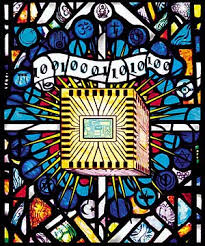The problem is our illusions and overly functioning imaginations.
Quoting: (
How powerful is the human brain compared to a computer?)
In an effort to mimic this digitally,
scientists a few years ago needed more than 82,000 processors running on one of the world’s fastest supercomputers to mimic just 1 second of a normal human’s brain activity.
More recently, a research study found that the human brain can hold 10 times as much information as previously thought. All told, scientists now believe that the capacity of the human brain is
about a petabyte.
Recently, a
Quora thread on the very issue shed some interesting light on the computational matchup between a computer and a human brain.
Humans are spectacular at several things, including pattern recognition, language abilities, and creative thinking. Computers are rapidly improving at pattern recognition, but most programs still don’t do as well as children. A classic example of pattern recognition is face recognition. We are capable of recognizing faces in a variety of contexts. We can even recognize faces that have aged, or are disguised, or are obscured by facial hair. Computers are not nearly as good as humans at such tasks.
So computers are more powerful [than] humans when it comes to executing simple step-by-step instructions. Humans are more powerful than computers at tasks that are not easily broken into simple steps. The fields of computer science, artificial intelligence, and machine learning are aimed at breaking down problems into ‘byte-sized’ chunks that are ‘digestible’ by computers.
So for now computers are informational babies — they cannot ‘cook’ for themselves.
So while they may exceed our abilities in plain number crunching, otherwise the lack far behind.
God gave us abilities that are beyond computers, yet contain some of the same abilities in different amounts.
God himself knows every thought that every human has, knows what goes on everywhere, earth and the rest of the universe, we are told. No simply computer system has such abilities, but that is how we can imagine it going on. We cannot imagine God, he is beyond our imagination; so, we tend to construct a mental image perhaps that is actually demeaning to him. We don't usually realize how powerful our own brains are compared to machines.

